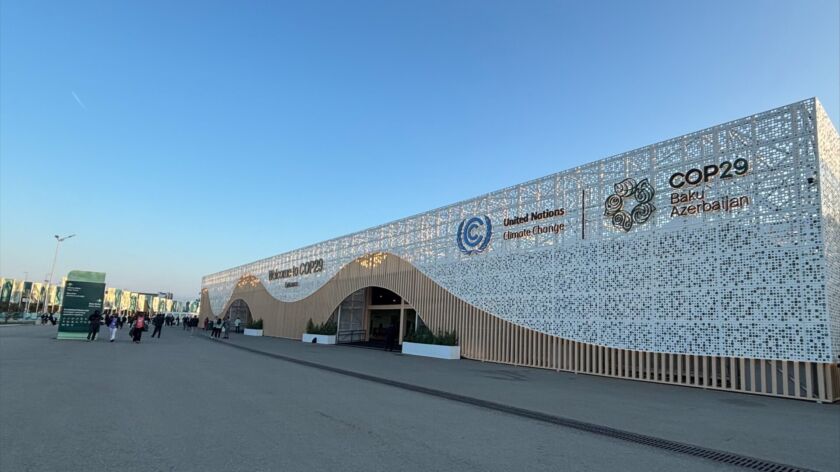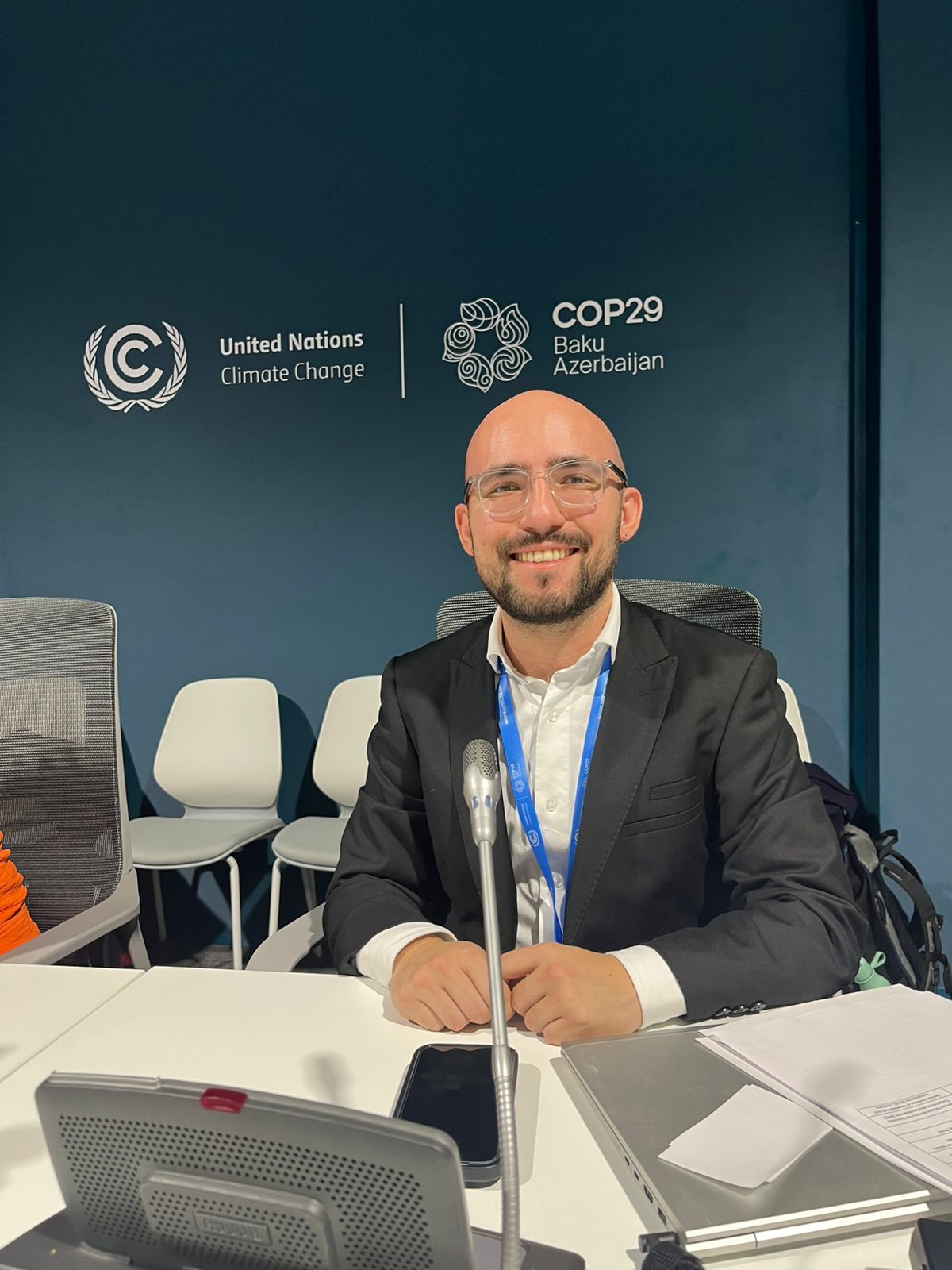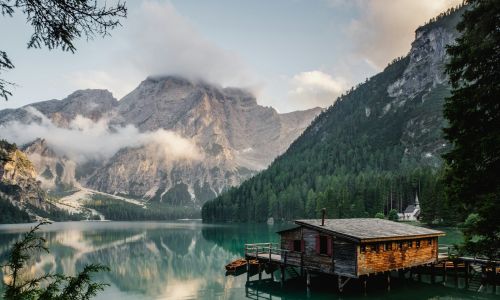PhD candidate speaks at climate summit: ‘Large-scale action is needed to address climate change impacts’
-
 COP29 in Bakoe. Beeld: Sebastian Reyes de la Lanza
COP29 in Bakoe. Beeld: Sebastian Reyes de la Lanza
The climate summit (COP29) in Baku is attended by government leaders and policymakers, but also many scientists. One of them is PhD candidate Sebastian Reyes de la Lanza, who is conducting research on voluntary climate action and sharing his main findings at this major international summit.
In the corridors of the 29th UN climate summit in Baku, the frustration is by now quite palpable, says Sebastian Reyes de la Lanza. The Radboud PhD candidate arrived in Azerbaijan’s capital last Saturday to present his own research. ‘The summit is almost over, but despite two full weeks of negotiations, there is no clear agreement,’ says Reyes de la Lanza.
The main theme of the summit is climate financing. With the main question being how much money ‘developed countries’ should give to ‘developing countries’ to help them deal with the effects of climate change. An issue on which governments in particular need to agree with each other.
However, the meeting is also a place where climate experts share the latest knowledge and insights from scientific research. Reyes de la Lanza has presented the main findings of his research on the integrity of voluntary climate action. This research is part of the ACHIEVE project (Achieving High-Integrity Voluntary Climate Action) that is funded by the EU Horizon Europe programme.
You conduct research on voluntary climate action. What is it exactly?
‘Addressing the impacts of climate change requires large-scale action. But we can all see that national governments are not sufficiently succeeding in really getting things done, despite the great agreements made earlier at international level.’
‘Cities, municipalities, businesses, financial institutions and NGOs are jumping into the resulting gap. We call this voluntary climate action. One example is the European Covenant of Mayors on Climate and Energy, in which local governments voluntarily commit to helping implement EU climate and energy targets.’
‘Signatories to the covenant pledge, for example, to reduce greenhouse gas emissions in their territories and prepare for the negative impacts of climate change. But there are also businesses, for example, that work as a group to create a more climate-friendly supply chain.’
Why is it important to take a closer look at this kind of initiative?
‘We have seen a considerable increase in these kinds of voluntary climate initiatives over the last decade. Precisely because a lot of hope is pinned on such initiatives, and because a lot of money is involved, it is important to monitor them for the results they achieve and for how incorruptible they are. Partly to prevent participants from committing themselves mainly to seem greener themselves. For my research, I therefore did a comprehensive integrity analysis of 267 such voluntary climate initiatives.’
‘Promises are made to become climate neutral in the long term, but no interim and short-term targets are set’
‘Studies like these are very important to understand under what circumstances voluntary action actually produces effective climate action. Moreover, greater understanding of what works and what doesn’t can help shape successful future initiatives.’
In what way do you examine the integrity of this kind of initiative?
‘I look for example at whether a city council actually delivers on its green promises. Are they transparent about their results, and are they accountable? Or are they mostly engaging in greenwashing?’
‘But it is not just about that. In this project, we are also investigating whether voluntary climate efforts contribute to other social and environmental issues that may arise in a given region. Or do they on the contrary clash with them?’
Can you give an example of where things can go wrong?
‘What we often see, for example, is initiatives making big promises and setting highly ambitious goals, without making it clear how and when these goals are to be achieved in concrete terms. For example, promises are made to become climate neutral in the long term, but no interim and short-term targets are set. Keeping targets vague makes it difficult to hold these initiatives to their fine promises and there is a risk of greenwashing.’
‘We also see that voluntary climate initiatives are not always transparent. For example, they report little on their activities, results, or ultimate impact. And we see a lack of transparency regarding how initiatives are funded and how much money they invest in their various activities.’
How did your presentation go?
‘There is of course an awful lot to do here, throughout the day there are lectures and meetings you can attend. We were therefore pleased that approximately 40 visitors attended our part of the programme, which consisted of several lectures in addition to my presentation. There were also people involved in voluntary climate action themselves who found certain outcomes very recognisable.’
This is your first time attending such a big international climate summit. What is it like to walk around there?
‘It is fantastic and very interesting to witness. To meet like-minded people, to attend lectures by senior politicians, but also to see that even here the big polluters, such as oil and gas companies, walk around lobbying for their cause.’
‘Despite the frustration that is certainly palpable here now due to the lack of concrete agreements, and despite a possible outcome that may not be to our liking, I think it is still important that conferences like this exist. A place where all these different climate stakeholders can come together and exchange knowledge with each other. Without places like this, that world would be far too fragmented and we would get less done.’




